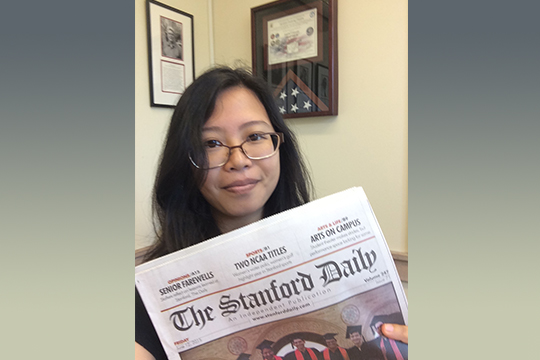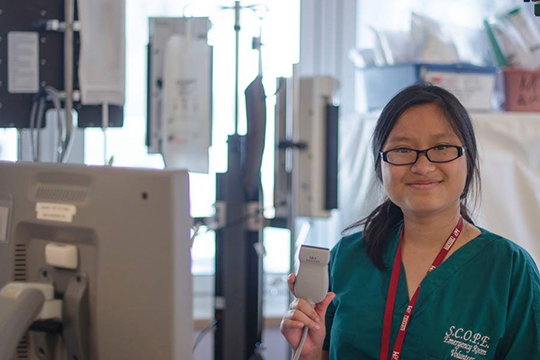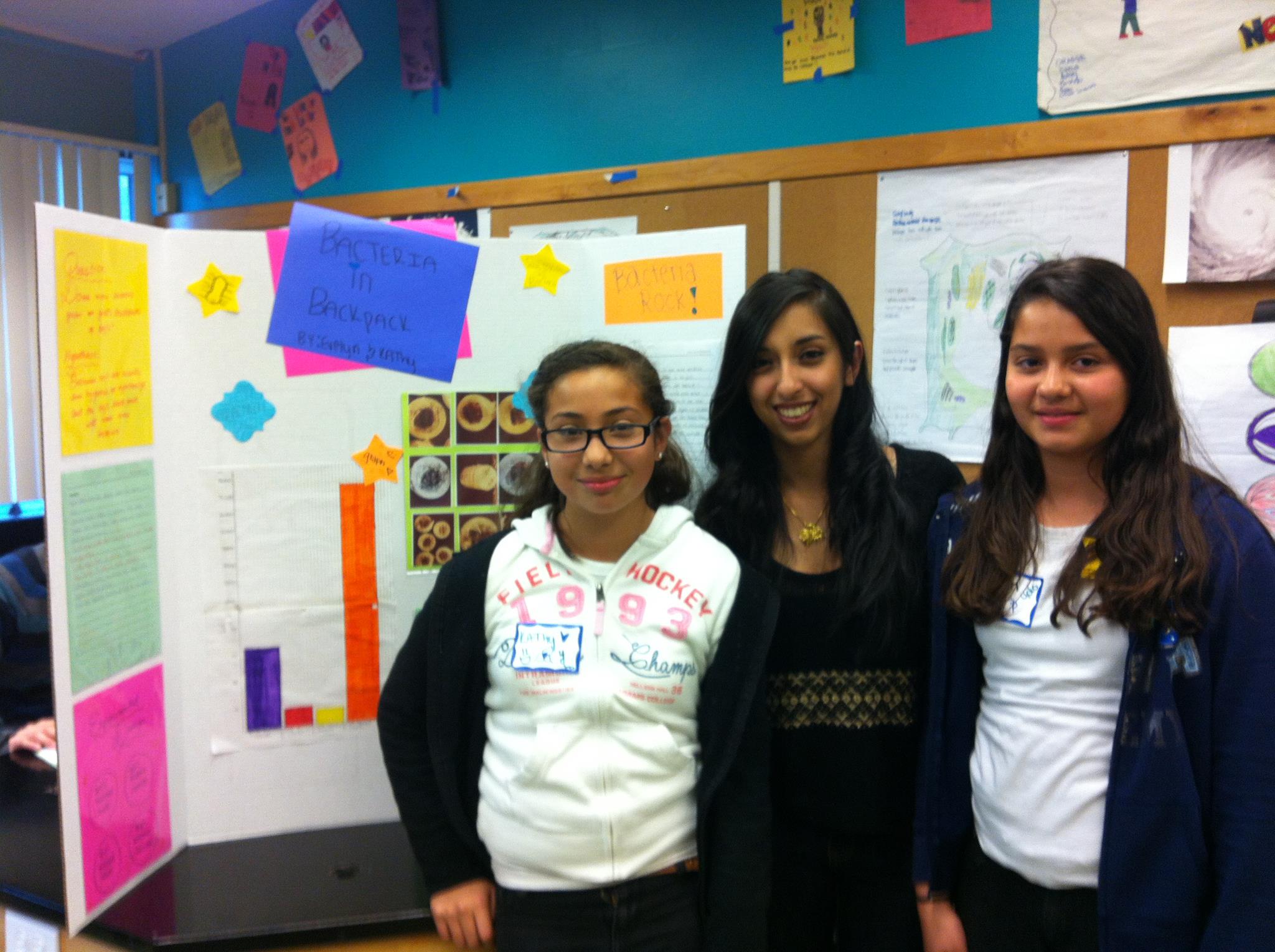
Catherine also wrote for the Stanford Daily throughout her time at Stanford.
By Catherine Zaw, ’15 (Biology, Linguistics)
When I signed up to volunteer for a homeless women’s shelter in the winter of 2013, I anticipated physical work moving mattresses and sleepless nights worrying about the safety of the shelter. What I didn’t expect was the bonds I would form with some of the residents.
Annie had been a waitress in a traditional Italian restaurant before it was replaced by a fast food chain. “I can name all the types of pasta,” she told me. She drew pasta shapes on a scrap of napkin. “The conchiglie is my favorite. It’s like a conch shell. My grandmother used to make it all the time.”
Annie taught me everything she knew after a lifetime working with pasta. In turn, I told her about how the words macaroni, macaroon, and macaron have the same etymological heritage, but are completely different foods now. We traded knowledge and life experiences, and after a whole winter, I was sad to see our shelter time come to an end.
Annie wasn’t the only woman with a story at the shelter. Each visitor came in with her own experience, and the lesson I took was that there is a story in everyone, everything—and that all of these stories are important.

Van at SCVMC
By Van Tran, ’16 (English)
Not many people can say they’ve had the chance to meet a survivor of human trafficking and domestic violence. I still remember the day the paramedics brought Quy* into the emergency room. Her head was tender from where it been bashed, the skin around one eye an angry red that slowly bruised purple. But what I remember most is the blank look in her eyes as the staff at Santa Clara Valley Medical Center (SCVMC) tried to figure out what language she spoke.
Our hospital doesn’t have in-house interpreters on weekend or overnight shifts. That’s where I come in as a volunteer interpreter from SCOPE, a hospital nonprofit that connects Stanford students with opportunities for public service. On some days, I’m the only Vietnamese speaker in the emergency department. By bridging linguistic and cultural barriers, I facilitate healthcare delivery for patients like Quy.
In my three years with SCOPE, I have been blessed with the opportunity to share in the experience of SCVMC patients, many of whom come from underserved communities. In the process of working with these patients to convey their story, I discover new facets of my cultural heritage and emerge reinvigorated in my dedication to public service.
*Alias used to protect patient’s privacy.

By Ritika Dutta, ’15 (Biology)
In my sophomore year, I worked with two middle school students on a project about bacteria. Neither of the girls seemed very interested in the material and both were constantly distracted. In an effort to make the project fun for them and engage them, I suggested that our project be to take bacteria from both girls’ and boys’ backpacks and compare the types and amount of bacteria in each. Immediately, the girls were excited and enthusiastic – they couldn’t wait to figure out whether boys or girls were “dirtier!”
The project was extremely effective in teaching essential scientific concepts, such as how to develop a hypothesis, design an experiment, and analyze data. As I watched the girls proudly and confidently present the project on the last day, I felt immensely proud at their progress – both girls had told me they were extremely shy and had never been able to speak publicly, but after a lot of practice and confidence-building, they did an amazing job and were able to overcome their fears. I hope that the experience helped them realize that science can be fun and interesting and opened the door for future exploration.



